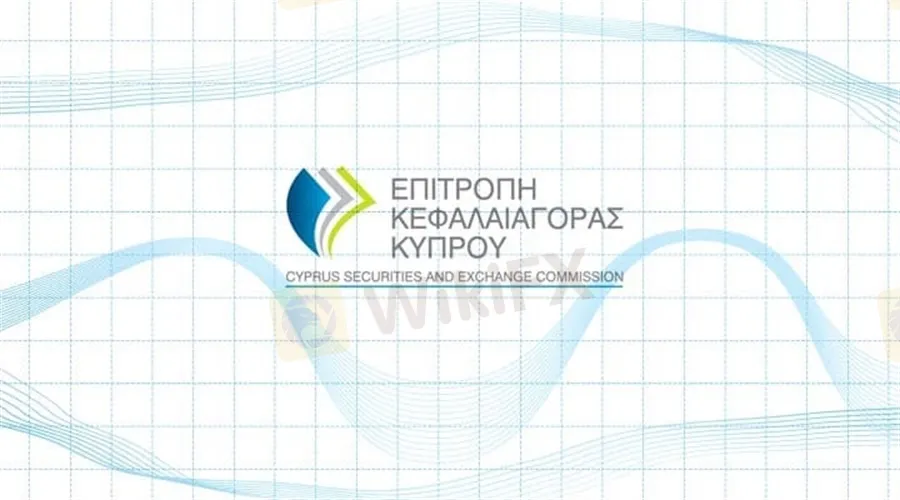简体中文
繁體中文
English
Pусский
日本語
ภาษาไทย
Tiếng Việt
Bahasa Indonesia
Español
हिन्दी
Filippiiniläinen
Français
Deutsch
Português
Türkçe
한국어
العربية
CySEC Asks Maxigrid Clients to Submit ICF Compensation Claims
Abstract:Clients must submit claims before April 2023. The license of the brokerage operator was canceled last February.

The Cyprus Securities and Exchange Commission (CySEC) announced on Thursday the commencement of the compensation process under the Investor Compensation Fund (ICF) to the clients of Maxigrid Ltd, which operates FX and CFDs broker brands, Dualix and AGM Markets.
Take Advantage of the Biggest Financial Event in London. This year we have expanded to new verticals in Online Trading, Fintech, Digital Assets, Blockchain, and Payments.
The regulator now has detailed the process of claiming compensation, which can be done both online and offline with supporting documents.
“Covered clients must submit their claims against the Company, if any, arising out of the covered services, by the 30th of April 2023,” the regulator added.
CySECs ICF covers the deposits of all clients of any locally regulated financial services company up to €20,000. The compensation funds are used in the case of the service providers becoming bankrupt or unable to return customer deposits due to financial constraints.
A Troubled Broker
Maxigrid ran the operations from its Cypriot base after receiving a Cyprus Investment Firm (CIF) license in 2011. However, its license was withdrawn by the Cypriot regulator last February. The broker violated multiple mandatory compliance rules that led to the cancellation of its license.
The license of the brokers was also suspended multiple times before the cancellation.
The Cypriot regulator initiated ICF proceedings for Maxigrid last June after the regulatory board decided on it in late March. According to the regulator, the brokerage operator is “unable to meet its obligations arising out of investors' claims and has no early prospect of being able to do so.”
The latest regulatory announcement added: “Before submitting an application to the ICF, all parties concerned (covered clients of the Company) are invited to study the relevant provisions of MiFID II, the ICF Directive, as well as the information on the submission of applications for payment of compensation posted on the CySEC website and take all necessary actions to submit their claims. The existence of a valid claim by the claimant is an essential requirement for receiving the compensation.”

Disclaimer:
The views in this article only represent the author's personal views, and do not constitute investment advice on this platform. This platform does not guarantee the accuracy, completeness and timeliness of the information in the article, and will not be liable for any loss caused by the use of or reliance on the information in the article.
Read more

California Cracks Down on Crypto Scams: 42 Websites Shut Down in $6.5M Bust
California Attorney General Rob Bonta announced earlier this week that the state had taken decisive action against fraudulent cryptocurrency operations. Authorities successfully shut down 42 scam websites responsible for deceiving investors out of at least $6.5 million.

Nigeria’s Oil and Gas Sector Gains Momentum
Nigeria’s oil and gas industry is experiencing a surge in investment, fueled by policy reforms and international collaboration, paving the way for continued energy expansion.

The Global Tariff War Escalates: Who Suffers the Most?
The global trade war is intensifying as countries continue to raise tariffs, aiming to protect their own economies while creating greater market uncertainty. In this tit-for-tat game, who is truly bearing the brunt?

Immediate Edge Review 2025: Is it safe?
Launched in 2019, Immediate Edge claims to be an automated cryptocurrency trading platform using AI technology for crypto trading services. The platform requires a minimum deposit of $250 to begin trading, which is relatively expensive for many investors. During its short operation, Immediate Edge failed to establish a positive reputation. The platform has undergone frequent domain changes and has repositioned itself as an intermediary connecting users with investment firms—a move that appears designed to obscure its actual operations. Immediate Edge restricts services to investors from the United States; it remains accessible to users in other regions.
WikiFX Broker
Latest News
Indian Watchdog Approves Coinbase Registration in India
SILEGX: Is This a New Scammer on the Block?
IIFL Capital Faces SEBI's Regulatory Warning
How Can Fintech Help You Make Money?
Why Is OKX Crypto Exchange Under EU Probe After Bybit $1.5B Heist?
Gold Trading Insights: Prepare for Moves Above $2,900 Post-CPI
Good News for Nigeria's Stock Market: Big Gains for Investors!
Royal Forex’s CySEC License Revoked: Can It Still Operate Legally?
The ‘Boom-S’ Scam: How a Simple Click Led to RM46,534 in Losses
Trump vs. Powell: The Showdown That Will Shape Global Markets
Currency Calculator






